‘Shavuot-Palooza’ to Offer Festival of Jewish Learning
Zoom rooms will bridge social distancing for at least eight hours on May 28 as Jewish clergy and lay people lead study sessions on a wide range of topics.
Dave Schechter is a veteran journalist whose career includes writing and producing reports from Israel and elsewhere in the Middle East.
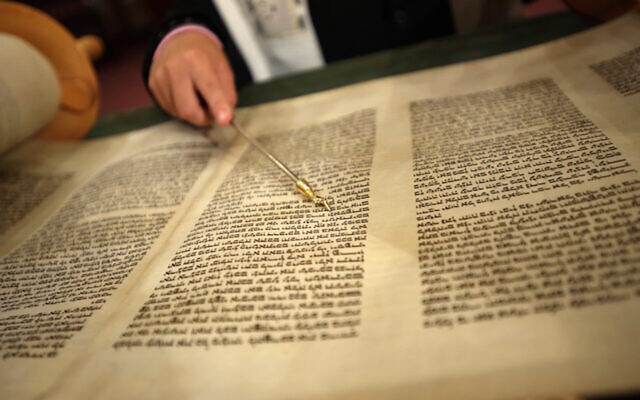
Call it “Shavuot-palooza,” though the Hebrew term for what the Atlanta Rabbinical Association will present May 28 is a Tikkun Leil Shavuot, a study session that lasts long into the night.
Whatever you call it, the online program is another example of COVID-19 as the necessity that becomes the mother of invention.
Shavuot (the Hebrew word for “weeks”) celebrates the end of a 50-day period that begins on the second day of Passover. Those days, also known as “counting the omer,” marks the number of days that the Israelites traveled through the desert from Egypt to Sinai, where Moses received from God the written and oral Torah. As an omer was an ancient measurement of grain, the holiday also commemorates the spring harvest.
In the world BC (before COVID), congregations often organized their own overnight study programs, but the closing of synagogue doors in mid-March propelled Jewish life into the virtual world, providing opportunities to cross denominational, congregational, and geographic boundaries.
Beginning at 6 p.m. Wednesday and ending at about 1 a.m. Thursday, May 29, the program (as it existed at this writing) will offer eight hours study of not only Torah but also other aspects of Jewish life, among them culture, music, food, ethics, Israel, sexuality, and more. Rabbis, cantors, and a number of learned men and women — most, but not all in Atlanta — will hold forth in numerous “rooms” via the Zoom video-conferencing platform. Several of the hours offer multiples choices.
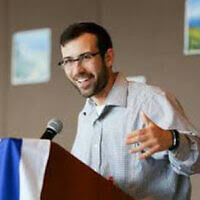
The program can be accessed by registering at atlrabbis.org. An email will be sent before the event with the latest schedule and Zoom links to each of the offerings.
“This is a unique opportunity for the community. Several synagogues may come together to study, but this is a rare opportunity, with a message of unity for the whole community,” said Rabbi Ruth Abusch-Magder, education director of the organization Be’chol Lashon, which works to raise awareness of ethnic, racial and cultural diversity in the Jewish world.
“We are doing this because we have a vision of serving everyone in the community and also this is a really special opportunity for us, for all the Jews in Atlanta to come together for Shavuos,” Abusch-Magder said. “We believe in the community. We believe in the strength of the community. We believe in the diversity of the community.”
Abusch-Magder, along with Rabbis Ari Kaiman of Congregation Shearith Israel and Daniel Dorsch of Congregation Etz Chaim, form the event’s executive committee. Every rabbi that is a member of the ARA was invited to participate.
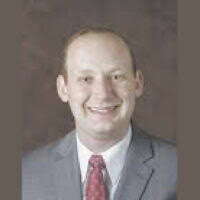
Kaiman said that at a time when “our Jewish values of protecting lives keep us apart from one another, we are adapting to this moment. When this moment, God willing passes, we’ll have new collaborators.”
“It’s been in moments of great challenge for the Jewish people that we’ve always managed to summon our inner creativity,” Dorsch said. “Through not only our message of Torah, but our innovative medium, Atlanta’s Tikkun Leil Shavuot will showcase the strength of a unified Jewish community worthy of receiving the Torah this year.
As food is a part of most Jewish events – and in the case Shavuot, it often involves cheesecake – from 6 p.m. to 1 a.m. there will be a Zoom “hang-out” or “schmooze room,” where people can sit with their refreshments and chat with other participants.
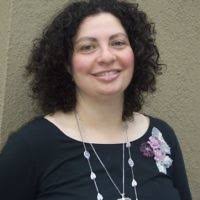
“This is another great moment for Atlanta to shine,” Abusch-Magder said. “It highlights the strength of our community, the diversity of our community, and the way we can come together. We’re very excited about the possibility.”
Kaiman noted that for several years The Marcus Foundation has “provided funding to help bring Atlanta rabbis together in meaningful and productive ways that have helped facilitate a culture in Atlanta that is admired across the country among rabbis,” particularly in the areas of study and professional development, “a culture I know colleagues all over are a little jealous of.”
The lineup, as of May 21:
6 p.m.
Rabbi Brian Glusman, director of engagement at the Marcus Jewish Community Center of Atlanta, on “Mysteries of the Omer.”
Rabbi Claudio Kaiser-Blueth, Congregation Or VeShalom, on “My experience bringing Jewish families out of Cuba to Israel.”
Rabbi Avrohom Horovitz, retired U.S. Army chaplain, on “613 Mitzvot.”
Rabbi Karmi Inger, The Kehilla, on “Revealing the Secret of Shavuot.”
7 p.m.
Michael Twitty, James Beard Award-winning author for “The Cooking Gene,” on Southern culture, Jewish culture, and his identity and Jewish journey. “We wanted to do something that was uniquely and engagingly Southern and Jewish,” Abusch-Magder said. “He is someone for whom his Jewish identity is never separated from being a gay, black man.” Twitty’s next book, “The Kosher Soul,” is due out later this year.
8 p.m.
Twitty will answer questions sent in during his 7 p.m. talk.
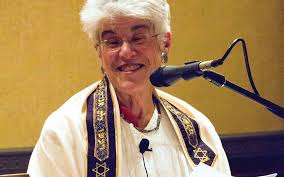
Rabbi Judith Hauptman, the E. Billi Ivry Professor Emerita of Talmud and Rabbinic Culture at the Jewish Theological Seminary, on “The moral obligation to speak out in the face of wrong-doing,” based on the Talmud.
Rabbi Peter Berg, The Temple, on “What Makes Torah Valuable.”
Rabbi Judith Beiner, Jewish Family & Career Services, on “Aging and Saging.”
8.30 p.m.
Shavuot prayers (sunset at 8.41 pm).
Rabbi Ari Kaiman, Congregation Shearith Israel, traditional tefillah.
Rabbi Malka Packer-Monroe of 18 Doors (formerly known as InterfaithFamily), on “Nourishment for the soul, a spiritually touring gathering for Jews and their loves ones.”
A service conducted by Reform movement cantors (each in their homes): Cantor Nancy Kassel of Temple Beth Tikvah, Cantor Lauren Adesnik of Temple Emanu-El, Cantor Deborah Hartman of The Temple, retired Cantor Barbara Margulis, formerly of Temple Kehillah Chaim, and Cantorial Soloist Mike Zuspan of Congregation Dor Tamid.
8.45 p.m.
* Jeffrey Lazarus, on “The more things change the more they stay the same: Counting Heads (census) in Torah and Today”
9 p.m.
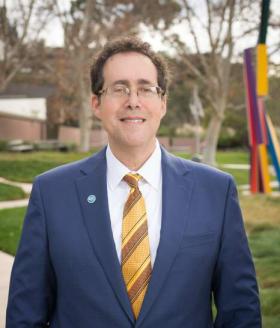
Rabbi Bradley Shavit “Brad” Artson, occupant of the Abner and Roslyn Goldstine Dean’s Chair of the Ziegler School of Rabbinic Studies at the American Jewish University in Los Angeles, Calif., on “Serve With Joy.”
Rabbi Neil Sandler, Ahavath Achim Synagogue, on “What Language Does God Speak?
Rabbi Alexandria Shuval-Weiner, of Temple Beth Tikvah, on “Ruth: Hussy or Savior.”
Rabbi Ruth Abusch-Magder, of Be’chol Lashon, and Aliza Abusch-Magder, on “How to Have Healthy Conversations with Your Kids About Bodies and Sex.”
Rabbi Dr. Analia Bortz, of Congregation Or Hadash, on “Longing for Jerusalem: Diaspora vs. Exilic Sentiment Towards The Promised Land.”
9.30 p.m.
Rich Walter, associate director for Israel education at the Center for Israel Education at Emory University, on “End of the Election Marathon: Thoughts on Israel’s new Government.”
10 p.m.
Rabbi Josh Warshawsky, a nationally-touring Jewish musician, song leader, composer, and teacher of Torah, on “Inside the Actors Studio: The Midrash Behind the Music”
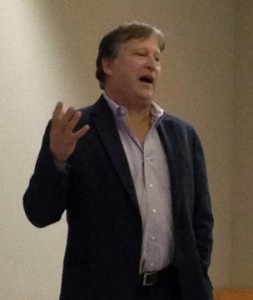
Paul Root Wolpe, Raymond F. Schinazi Distinguished Research Chair in Jewish Bioethics and the Director of the Center for Ethics at Emory University, on “The Ethics of Pandemics.”
Rabbi Michael Bernstein, Gesher L’Torah, on “An Ecstasy of Fumbling: The Torah of the Wilderness.”
Rabbi Emeritus Harvey Winokur, Temple Kehillat Chaim, on “You Shall Not Covet: Desiring that which is not yours.”
Midnight
* Rabbi Joshua Heller, Congregation B’nai Torah, on “The Zoom Golly Golly.”
11 p.m.
Sammy Rosenbaum, rabbinic intern at Congregation Shearith Israel, on “Joy and Fear in Torah Study – Pesachim 117a.”
Rabbi Samuel Kaye, The Temple, on “Those Who Refuse Torah: The Tragedy of Aher.”
Rabbi Lauren Henderson, of Congregation Or Hadash, on “Hearing God’s Voice: Meditation and Revelation.”
Wendy Kalman on “Empathy – Getting past the labels that separate us from others.”
Midnight
Rabbi Daniel Dorsch, Congregation Etz Chaim, on “Habakkuk and Cookies.”
Rabbi Spike Anderson, Temple Emanu-El, on “The Nazir, Divine Communion and Coronavirus.”
Rabbi Laurence Rosenthal, of Ahavath Achim Synagogue, on “Sex, Lies, and Suicide: A Talmudic Love Story.”
Rabbi Joshua Heller, Congregation B’nai Torah, on “The Zoom Golly Golly.”



comments